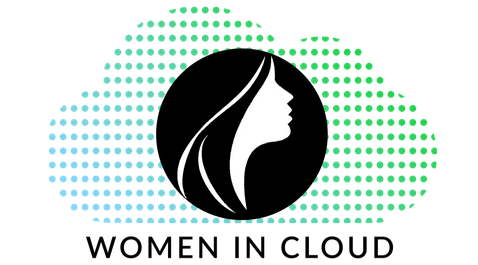On this International Women’s Day 2021, and every day, I’m joining all those who #ChooseToChallenge the biases and traditional ways of doing things that are holding women back. As women climb their own career ladders, they can be a powerful force for lifting other women.

To do this effectively, we may need to examine and challenge how we lead. In our career journey, we often focus on our personal ambition; getting results; winning promotions. But being an outstanding leader is really about empowering others, enabling them to succeed. Have we been leading in this way? Are we setting a good example? Are we enabling our teammates to grow and thrive?
I’ve been thinking a lot about the idea of the “servant leader,” and trying every day to play this role. I’m convinced this model of leadership has tremendous potential to change workplaces for the benefit of women (and men), and also to build better organizations and communities.
Let’s examine what servant leadership is; what it isn’t; and how you can know whether you’re in an organization that supports this way of leading.
What is servant leadership?
Servant leaders take the traditional leadership model and turn it upside down. They serve those they lead, by enabling their teammates to achieve often beyond their own expectations. Servant leaders focus on empowering and uplifting those who work for them.
While traditional leadership generally involves someone at “the top” exercising power, servant leadership is very different. The servant leader shares power, and helps people develop and perform as highly as possible. One of the questions the servant leader asks herself is, “Are the people I’m serving growing and flourishing?”
Not long ago, I had an epiphany about this in my own life. I had steadily climbed my career ladder and reached the level of a top sales director and one of the senior women executives in Accenture. But I was starting to examine what kind of leader I wanted to be.
I realized that being a good leader is not just about personal drive and my own career path. As a senior woman executive who has achieved great success, I have a platform to lift other women up. It’s time for me to focus on the next generation of women leadership and help them move up in their careers. What does each woman need on her career journey? What can I do to support her?
We can be servant leaders at any stage of our careers. It’s independent of our age, position, experience or life circumstances. Anyone can support and enable others.
What isn’t servant leadership?
We should also be clear on what servant leadership is NOT. It’s not martyrdom or neglecting your own well-being. You’re all familiar with the safety instructions in airplanes: “Put your own mask on first” before trying to help your child or another passenger! Servant leadership holds that before you can be an effective leader, you must take care of yourself. It’s not being self-centered; instead, think of it as self-care for service. It’s a more realistic, human view of our lives.
And self-care is immensely valuable, to ourselves and those around us. The pandemic has made this starkly clear. While it has impacted everyone, it has taken a huge toll on women in the workforce.
Recent research found that more than one in four women are thinking about downshifting their careers or even leaving the workforce. The gender-equality gains achieved in the past several years could be wiped out in a single year as a significant number of women may leave their jobs due to the impact of COVID-19. And Accenture research confirmed that the impacts of the pandemic have fallen disproportionately on women—and especially working mothers, senior-level women, and women of color.
I’ve formed some self-care “habits” to practice every day. I start each day with meditation. I take some time to invest in myself and my well-being. I try to take five minutes between meetings—little micro-calibrations—to help me mentally get things together so that I can bring my best to my next meeting.
How do I recognize a supportive workplace?
Now that we know what servant leadership is (and isn’t), how can we recognize an environment that supports us in this way of leading? We want to be in an organization that teaches and enables us to be effective servant leaders.
One of the reasons I love working at Accenture is this continued support for my growth as a leader. Accenture offers its executive leaders the option to work with their own executive coach. My coach is encouraging me to think about how I will get to next level of leadership. She has helped me understand that my job now is to help others do their jobs well; it’s not to execute everything myself. As my coach put it, “Now you need to spend less time on the dance floor and more time in the balcony!”
I encourage you to think about what that means for you as you aspire to keep advancing. What got you here—where you are now—likely won’t get you where you want to go. Figure out ways to continue your personal growth, whether or not your employer pays for it. Growth is a hugely important personal investment.
Accenture is committed to promoting a work environment in which everyone can thrive. We’ve received numerous awards for gender equality and supportive environments for women, but we keep striving. We put down an unequivocal stake: 50/50 by 2025—a gender-balanced workforce by 2025.
All of Accenture’s women are mentored and supported at each stage of their careers. We offer powerful internal training and mentoring programs for women. The Developing Our Women Program connects junior, mid-level and senior-level women for networking and collaborating on development plans for career advancement. Our Insight program connects senior-level women for similar purposes.
For several years, Accenture has been studying a culture of equality and its impact. We found that workplace culture is critical for women’s advancement, and when women rise, men rise, too. Workers want to stay at companies that take care of their people. Our research showed that a culture of equality is a forceful multiplier of innovation and growth. When you lift up women, you lift up everyone—families, organizations, communities, entire countries.
The servant leader model echoes the movement by many companies toward “responsible business,” which is to reimagine, rebuild and transform our global economy into one that works for the benefit of all. Organizations of all kinds have a tremendous opportunity to reimagine and rebuild with responsible business. And we as consumers can demand this of them, using our wallet and making conscious purchasing decisions. Choosing to buy from responsible businesses is one of the greatest ways we can have a positive impact for change. I view this as yet another way to embody servant leadership.
As I’ve been pursuing my personal mission to be a servant leader, I’ve been reading a terrific book by someone who actually left Accenture to study how to be a monk. The book is Think Like a Monk, by Jay Shetty. He draws on the wisdom he learned as a monk to offer practical steps anyone can take every day to live a more meaningful life.
Among many brilliant insights and teachings in his book, he discusses why kindness is crucial to success. He quotes Daisaku Ikeda, a Japanese Buddhist philosopher and educator, who says, “It’s impossible to build one’s own happiness on the unhappiness of others.” You could also say, “It is impossible to build your own success on the failure or neglect of others.” No organization or society can thrive if women aren’t thriving too. I encourage you in all of your business dealings to think before you act. I am practicing every day to think about how I can be kinder in all of my dealings. When do I need to be firm and forceful? And when to be kind and generous? As a leader (especially a woman leader), it’s a tricky balance that takes intentional effort.
The author Nelson Henderson said, “The true meaning of life is to plant trees, under whose shade you do not expect to sit.” Each of us has benefitted from others who planted trees under whose shade we now thrive. It’s now our turn to be the servant leader who enables other women to advance.
Conclusion
We all have a responsibility—and ability—to lift up other women, in our professional and personal lives. This charge doesn’t “begin” when we move into a particular position early in our careers, and it doesn’t “end” when we reach the top rungs of our career ladders. As servant leaders, we can continually support other women in their climb, just as we ourselves seek out mentoring and coaching.
I urge you to commit to three actions to uplift other women:
- Identify your aspirations. Imagine the future you want for women in your company and community. What would it look like? How would lifting other women help us get there? If we don’t clarify what we’re aspiring to, we’re not likely to achieve it.
- Choose a leader you especially admire for her or his ability to empower women, and ask to be mentored. Observe how she leads and the results she achieves. Ask her for her advice on how to be an effective servant leader. Adapt what you learn to your own style.
- Learn more about how to be an effective mentor and servant leader. Admit you don’t have all the answers or skills. Ask questions, listen, seek out training and build on your personal strengths. This one willbe the hardest, and I hope you incorporate it into your own personal growth journey. The rewards will be infinite.
I look forward to hearing your stories and questions, observing your progress on your career journeys, and most importantly seeing the impacts of your servant leadership!
Watch her TEDx Talk : Stop Climbing and Start Lifting
Credits: Gina Fratarcangeli, Managing Director, Market Unit Sales Leader, Accenture



 Costanoa Ventures
Costanoa Ventures